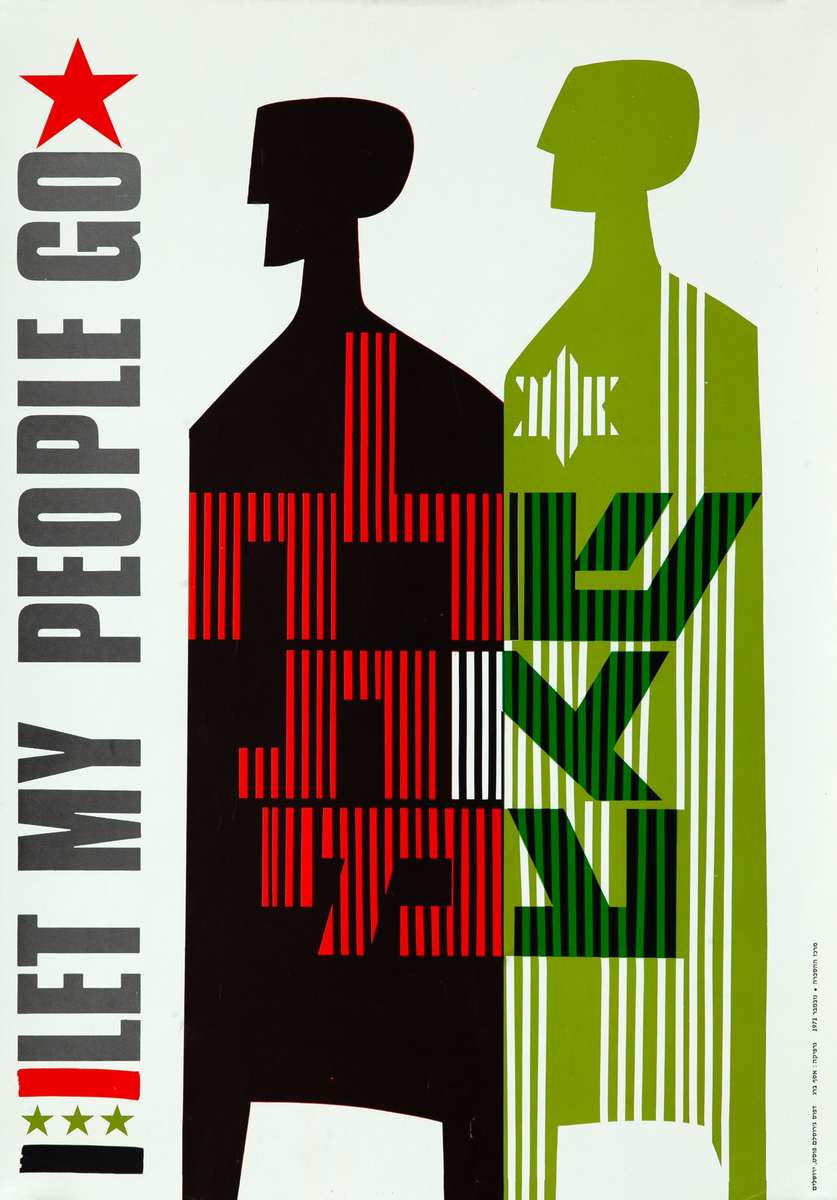
Jewish Soviet Refusnik Protest Poster Let My People Go
- 1977
-
13 1/2 x 19 1/2 inches ~ (33 x 48 cm)$980
- Unbacked
This poster is currently unbacked. At check out, you will be given the opportunity to add backing which would cost $80 and take approximately 6-8 weeks.
Linen backing is the industry standard of conservation. Canvas is stretchered and a sheet of acid free barrier paper is laid down. The poster is then pasted to the acid free paper using an acid free paste. This process is fully reversible and gives support to the poster. A border of linen is left around the poster and can be used by a framer to mount the poster so that nothing touches the poster itself. Backing is what we recommend for framing, and for any poster needing restoration.
- Add to Cart Add to Wishlist E-Mail Us About This Poster
RARE Israeli poster printed by The Ministry of Immigrant Absorption of Israel (Hebrew: המשרד לקליטת העלייה, HaMisrad LiKlitat HaAliyah), known until 1951 as the Ministry of Immigration (Hebrew: משרד העלייה, Misrad HaAliya). In co-ordination with local authorities and the Jewish Agency, the Ministry is responsible for new immigrants (olim) for three weeks after they arrive, assisting in finding employment and accommodation and gives advice on education, planning and social issues, as well as setting up the “immigrant basket” of benefits (such as tax breaks, grants.
Refusenik was an unofficial term for individuals denied permission to emigrate from the former Soviet Union and other countries of the Eastern bloc. A typical pretext to deny emigration was the real or alleged association with state secrets. Applying for an exit visa had to be approved by the KGB, so that future career prospects, always uncertain for Soviet Jews, could be impaired. As a rule, Soviet dissidents and refuseniks were fired from their workplaces and denied employment.
As a result, they had to find menial jobs, such as a street sweeper, or face imprisonment on charges of social parasitism.The ban on Jewish immigration to Israel was lifted in 1971. Under Mikhail Gorbachev policies he mid-1980’s of glasnost and perestroika, as well as a desire for better relations with the West, led to major changes, and most refuseniks were allowed to emigrate.



